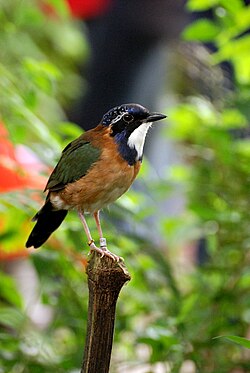| Atelornis | |
|---|---|
 | |
| Pitta-like ground roller | |
| Scientific classification | |
| Kingdom: | Animalia |
| Phylum: | Chordata |
| Class: | Aves |
| Order: | Coraciiformes |
| Family: | Brachypteraciidae |
| Genus: | Atelornis Pucheran, 1846 |
Atelornis is a small genus of birds in the ground-roller family Brachypteraciidae. The genus is endemic to Madagascar. [1]









